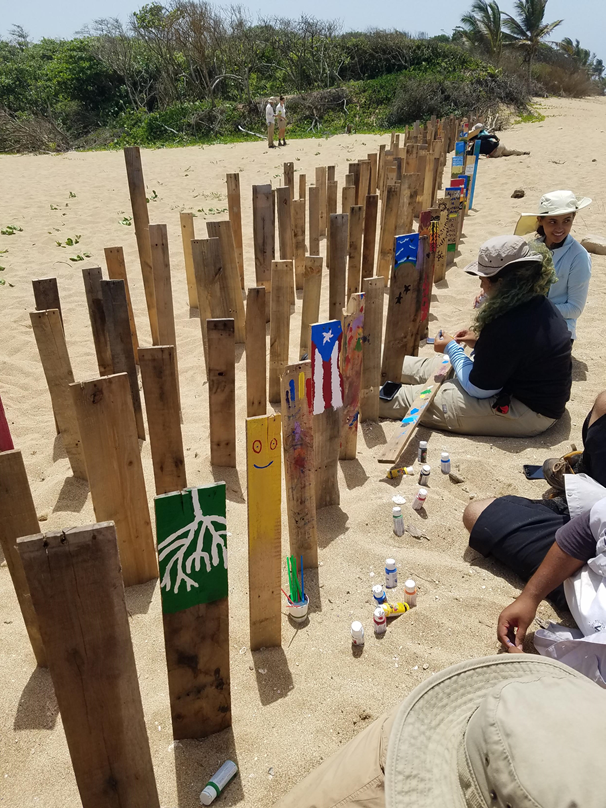We asked the Climate Heritage Network, our partners in the Arts, Culture and Heritage theme, to tell us something about their work and their presence at COP26
Why we’re supporting the Resilience Hub
Tackling climate change requires an all-of-society-effort but too often the cultural dimensions have been missed. The Climate Heritage Network represents a cross section of cultural actors/operators from arts, culture and heritage. Our members felt that that the Resilience Hub presented a perfect opportunity to breakdown silos and communicate to a diverse audience the benefits cultural partners can bring to every type of resiliency effort everywhere.
Why culture is central to resilience
The member organisations of the CHN are committed to scaling up the use of culture-based strategies to build resilience. Culture is central to understanding and implementing resilience actions, be they human behavioural change, institutional, or technological adjustments. The choices people make about climate change are shaped by culture, for instance the identification of risk, or decisions about whether and how to respond. From arts to heritage, culture can enhance adaptive capacity and build resilience in a variety of ways including:
- Culture and heritage support a multiplicity of pathways and social networks in groups and communities in ways that speak to trust, social capital, and place attachment.
- Nurturing a diversity of knowledge systems, livelihoods, functions, and of course biodiversity is also key to building resilience. Culture and heritage strategies embrace knowledge (local, traditional and Indigenous Peoples’); traditional technologies, including techniques and innovation through practice and adaptation; languages; modes of subsistence; resource-based livelihoods; land/sea use and sustainable management; unique and diverse worldviews and belief systems. Culture embraces the rites and rituals, sacred natural sites, mythologies, cosmologies, spiritualities and values on which resilience in action is based.
- Culture intersects with both the interconnectedness of communities but also their self-reliance, supporting both inter-cultural dialogue and exchange but also embodying the ‘endogenous’ capacities of communities that promote local self-sufficiency, like use of local materials and know-how.
- Equity and Justice, which includes how widely capabilities are distributed within a society, is key to resilience. Culture-based approaches address gender considerations; social roles in resource use, sharing and management; and governance including political and economic relations and legal institutions. This element also speaks to cultural rights and approaches rooted in human rights and the mobilisation of values and methodologies that support the practice of justice and inclusion.
- Adaptive learning is crucial to resilience. Culture and the arts support creativity and education, providing inspiration and innovation to resilience efforts

Our hopes for COP26
The inclusion in September 2021 of the Climate Heritage Network in the Race to Resilience demonstrates the role culture can play in aiding the global ambition for climate resilience. The #ClimateHeritage Race to Resilience Partner Campaign will link together cultural actors playing their part and scale up the use of culture-based strategies to support the resilience of at least 200 million people from vulnerable groups around the world by 2030.
Every person, every community has cultural resources, from arts to heritage, on which they can draw to support climate action and build resilience. Through engagement with COP26, the members of the Climate Heritage Network hope to help more people engage with the cultural dimensions of resilience, including climate activists, planners and policymakers who haven’t worked with cultural institutions and advocates before. Our ultimate aim is to showcase how arts, culture and heritage can help people pursue a resilient world where we don’t just survive climate stresses but thrive in spite of them.
The picture was taken in Puerto Rico where the DUNAS project (Descendants United for Nature, Adaptation, and Sustainability) supports vulnerable coastal communities in recovering their cultural heritage and restoring protective sand dunes as part of climate change resilience building. https://www.climatesciencealliance.org/dunas

